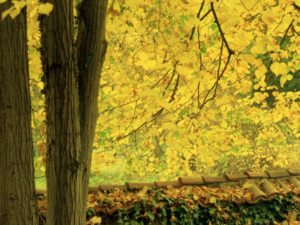For Greater Serenity, Practice Playfully
I’m trying to see life more playfully, from a child’s point of view. For the reward of necessary joy, I’m ready to turn my adult-y, logical way of knowing how upside down. Sometimes adult life feels inelegant, unmanageable and hard. There is sickness, suffering and death. There are fractured relationships we can’t repair. The international, national and local news can be heartbreaking—divisive, ugly, violent. To counter your feelings of helplessness and sorrow, watch a child at play. I love to watch my six-year-old granddaughter cartwheeling. Her joy is so effervescent, it’s contagious. She sprints across the newly greened spring lawn then leaps …
3 things nuns, monks and poets know about why you should “keep death daily before your eyes”
For the next year or so, I will be studying Michael Casey’s Seventy-four Tools for Good Living: reflections on the fourth chapter of Benedict’s Rule with my oblate group at Saint Benedict’s monastery. Among those seventy-four tools is this one: “To have death present before one’s eyes every day.” (RB 4:47) And this is a tool for good living??? That we should think daily about the imminent death of everyone we know and our own mortality may seem counter-intuitive. How can the constant awareness of death make our lives happier? But monastics are not the only people who live consciously with …
23 Spiritual Practices Taught by The Rule of Benedict
What do spiritual practices do? Practice is how people develop the skills to become adept at anything. Music students practice their instruments. Gymnasts practice routines, yoga students practice poses, swimmers practice strokes, and tennis players practice their serves. Successful organizational leaders practice self-mastery and teamwork. Just as all these people practice to become more proficient, spiritual seekers practice in order to become better at living a spiritual life. What is the Rule of Benedict? Do you yearn for a good life, and do you desire to see good days? Near the end of his life in 547 AD, Benedict of Nursia …
23 Spiritual Practices Taught by The Rule of Benedict Read More »
Judith Valente–poet, journalist, and Benedictine oblate–on "How To Live"
At the intersection of reading and writing, in the spaces where listening, silence, prayer, and wonder happen–there is poetry. There, too, is where I find support for living as a Benedictine. Some months ago I decided that my blog will focus on “Reading, Writing, and the Benedictine way of life.” Since then, I’ve been pondering what I want to write about the way I live now. Judith Valente has made it easy for me. Her recently published How to Live: What the Rule of St. Benedict Teaches Us About Happiness, Meaning, and Community is a book I would like to …
Judith Valente–poet, journalist, and Benedictine oblate–on "How To Live" Read More »
Invitation: Let's Walk Care-Fully THROUGH this Together
How will we get through this? Entering April, 2020 with a global pandemic and social distancing, we are likely encountering uncertainty, anxiety, fear, perhaps even dread, all triggered by our past experience of suffering and sorrow. To get through this painful time, to come out on the other side with wisdom and resilience, we would be wise to deal with our pain and our fears during this time. “There are two ways of dealing with suffering,” writes Almut Furchert, PhD.. “One is to give into despair. The other way is to give into the suffering, by noticing it, and by …
Invitation: Let's Walk Care-Fully THROUGH this Together Read More »
Poem: Healing is a Never Ending Departure
Healing is a Never Ending Departure an improvisation after the poem STUFEN by Hermann Hesse Tracy Rittmueller Like every flower fades and every childhood withers into age, every stage of life blooms; each insight, too. And every goodness blossoms in its time yet will not last forever. In every purpose, in every call of life, the heart must willingly let go. And then begin again, that with fortitude, yet not without some lamentation, we may give ourselves to new endeavors. So let …
How to Fight Fear on Facebook
The Irony of Facebook “Facebook was not originally created to be a company. It was built to accomplish a social mission–to make the world more open and connected.” –Mark Zuckerberg The irony of Facebook is that while its founder says he intended it to bring people together, there is ample evidence it is doing the opposite, driving people and ripping society apart. If you want to read about that evidence, here are two well-written articles: . . I have two sets of Facebook friends who appear to be growing increasingly fearful of and suspicious of each other, even hostile toward …
Let's Help Each Other Learn How to Ask For Help
If you know how to ask for help, please help me (and others) learn this skill For some years now, I’ve been connecting with people like you, who care about building a life around kindness, compassion, and the concept of enough. The people I like to hang out with, online and in person, believe that an obsession with fame and fortune—with what’s popular—blinds us to the essential aspects of a real life. Let’s build and strengthen authentic relationships, because real relationships are not about transactions. Real relationships are based on love. Still here? Good. Thank you. I have a problem and I …
How 3 months at a Benedictine monastery set me free from the time-pressure paradox
What is the time pressure-paradox? When I toured the early 20th-century caretaker’s cottage at the Rockefeller family’s historic Billings Farm & Museum in Woodstock, Vermont, the guide explained that the caretaker’s wife and three daughters took the entire day, every Monday, to wash the caretaker’s shirts and their own few dresses and undergarments, hang them to air dry, then iron and starch them. Now we stuff our laundry into machines and forget it. Our clothes get fresh-scenty-clean and dry while we haul the children to activities, run errands, balance the check book and get dinner on the table. Synthetic fabrics, …
How 3 months at a Benedictine monastery set me free from the time-pressure paradox Read More »
Envision Benedictine Listening (Obedience) through Visio Divina (Divine Seeing)
This is the sixth of 6 Visio Divina Meditations, as an alternative to New Years Resolutions. Professed Benedictine monastics formally promise to uphold a 3-fold commitment to listening (obedience), stability, and fidelity (conversatio morum) while living within their communities. Oblates (lay associates) strive to apply these principles while living “in the world” outside the monastery, believing all can benefit from incorporating the timeless wisdom of The Rule of Benedict into their lives. The Benedictine Promise of Listening (Obedience) “Obedience” Fiber Art by Pat Picket Obedience for a Benedictine monastic is first and foremost the promise to listen for the divine voice guiding …
Envision Benedictine Listening (Obedience) through Visio Divina (Divine Seeing) Read More »









